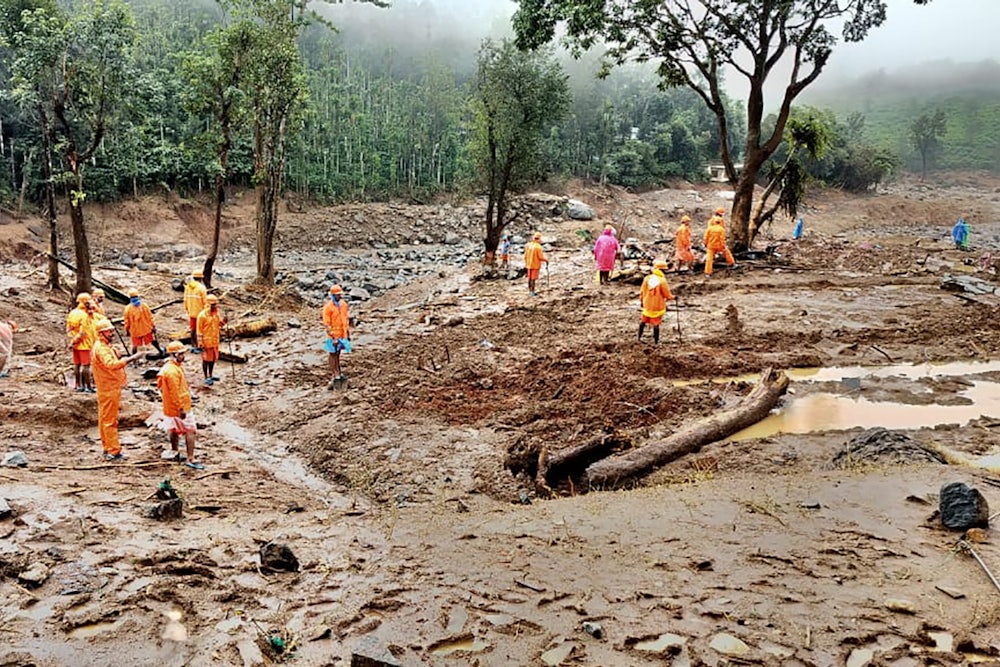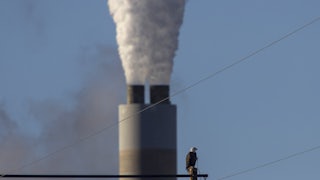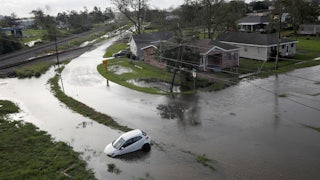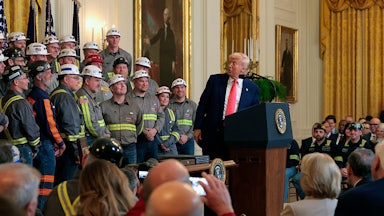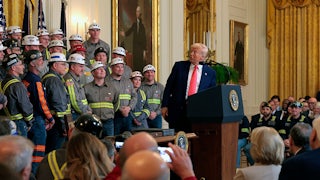Last Sunday, after a stretch of relentless rain caused by an “atmospheric river,” a hillside above Ketchikan, Alaska, gave way and slid into town. One person was killed. “Scientists said that intensifying rainfall, driven by climate change, could increase the risk of landslides in the area of Southeast Alaska that includes Ketchikan,” The New York Times reported.
While deadly landslides are a rarity in the United States—for now, anyway—other countries have become familiar with such tragedies in our warming world. Last month in southern India, in the state of Kerala, a downpour on soil already wet from monsoons led to a landslide that killed at least 308 people. A recent study from World Weather Attribution has now found that the rains preceding the landslide were 10 percent heavier as a result of human-caused climate change. Did Kerala’s dead die of climate change? What about those killed by extreme heat in the U.S.?
Another new study, from the journal of the American Medical Association, finds that 21,518 people have died of heat since 1999. Since then, heat-related deaths have increased by 117 percent, with a steep increase since 2016. The hottest of those years was 2023, when at least 2,325 died of such causes in the U.S.—as did an astonishing 47,000 people in Europe, which endured intense heat waves. This year is poised to be even hotter, thanks in part to heat waves like the one that descended over the eastern U.S. earlier this week.
Assessing what counts as a heat-related death is complicated, and some studies estimate that the actual number could be far higher. If you die after collapsing on the job, having overheated in the scorching midday sun—maybe in a part of the country that’s only started to get that hot in recent years—the death certificate might not even say you died of a heat-related cause. The same is true for other climate change–related deaths. Hurricanes, derechos, and other extreme weather events are certainly being supercharged by rising temperatures, and scientists’ ability to assess the precise role climate change plays in that is getting better. But it’s not an exact science, as they say.
Assigning a death toll to the climate crisis is even trickier. Some cases might seem straightforward: people caught in the flames of wildfires that were fueled by an abundance of dry brush after a hot, dry spring; a tenant who drowned after being stuck in a New York City basement apartment during flooding from a hurricane that strengthened over unusually warm water in the Gulf of Mexico. Less obvious examples also come to mind. What about a small-scale farmer who is pushed off his land and into dangerous parts of the informal economy, after years of drought crushed his crop yields? If he’s killed in a shoot-out, could his death be considered climate-related too?
The question of responsibility has loomed large over conversations about climate change. Oil companies have sought to popularize the idea of a “carbon footprint,” casting themselves alongside ordinary consumers as humble soldiers in the fight against rising temperatures and the greenhouse gas emissions that cause them. A controversial 2017 study, by contrast, argued that just 100 companies are responsible for 71 percent of global emissions, flattening some arguably important questions about who’s buying all that fuel. Is climate change the result of a conspiracy of oil and gas executives plotting to stymie climate action at every turn, poisoning our politics with their seemingly endless budgets for lobbying and campaign donations and disinformation? Are humans just too selfish to accept paying a little bit more to cut carbon, or is the fossil fuel economy simply too stubbornly baked into the functioning of the global economy to be displaced along any reasonable time frame?
Governments and policy thinkers have started coming up with novel, innovative ways to translate these debates into the real world. After extensive, costly flooding caused chaos in Vermont last year, the state legislature enacted a “climate superfund” law requiring major oil companies to pay for climate adaptation and resilience projects, with amounts assessed based on the share of emissions they produced between 1995 and 2024.
As deaths and displacement from extreme heat and hurricanes mount, though, discussions of who bears responsibility for climate-related deaths could become just as important as those about who’s causing the climate to change in the first place. A number of public interest lawyers have proposed trying corporate polluters with criminal charges, including homicide, for their responsibility in driving excess emissions, defrauding the public, and stalling political progress.
Questions of what counts as a climate-related death—and who’s responsible for that—matter at the micro level too. Is it the fault of a renter who baked in a sweltering high-rise apartment for not getting an A.C. unit installed? Or could their landlord be considered a climate criminal in miniature? Very few places have laws mandating that building owners keep their tenants’ units below a certain temperature, though, so there are no laws to hold them accountable.
The federal Occupational Safety and Health Administration is in the process of finalizing the country’s first-ever workplace heat protections, creating specific mandates beyond OSHA’s general requirement that employers provide safe workplaces. Companies will need to monitor job site temperatures, establish procedures for recognizing and responding to heat-related distress, and provide water and cooling breaks in hotter conditions. Such protections have already been written into some union contracts.
Policies that protect workers from bosses, and tenants from landlords, will keep more people safe in a warming world, as will the unions that fight for them. Housing and labor politics—to name just two areas—are climate politics. If debates about who bears the most responsibility for climate change can seem almost hopelessly abstract, debates about who’s failing to protect us from its deadly consequences are almost refreshingly material. That’s not an argument for ignoring corporate polluters’ crimes. But these more proximate struggles about renter safety, for example, can also help build up the organizations and mass constituencies needed to dissolve core business models of the companies that are causing the broader problems, replace the fuels that currently power the world, and save lives.
